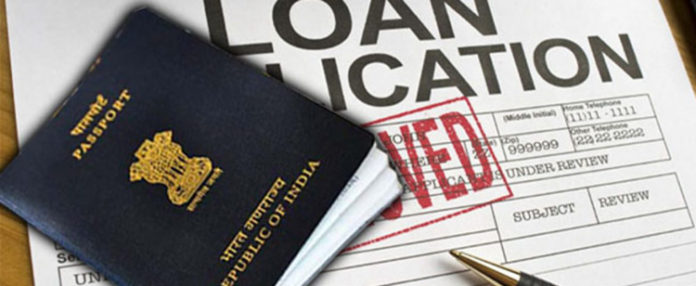Finally received your admit letter for your dream Masters programme abroad? Congratulations! All that hard work paid off! After all the hard work and a long, anxious wait, you can almost breathe a sigh of relief.
But, then there is the cost
Perhaps the biggest stumbling block you’ll face now is the steep cost of a masters abroad.(Just keep reminding yourself that it’s an investment in your future… because that’s exactly what a masters abroad is.)
The total cost of attendance can exceed US$40,000 – including tuition fees and living expenses. Depending on the programme, it can be even more. Given the high cost of a Masters abroad, many students look at educational loans to fund their education.
Study abroad education loans from Indian banks
Popular choices for study loans in India are local banks. A number of Indian banks offer education loans for students seeking to study their Masters abroad. It’s an obvious choice; these banks are established brands in the Indian lending industry and highly trusted by the public.
Students consider a loan from SBI, or any other national bank, one of the most trusted bets. These banks are backed by the Government of India and have funded many Indians in the past, who have successfully completed their Masters and repaid their loans.
However, when applying for a loan from these banks, it’s important to remember that every lender and borrower is different. Not everyone is offered the study loan of their choice. Sometimes local bank loans are unobtainable for one or several reasons:
Reasons for the rejection of your study abroad loan could be –
1. Collateral
Collateral means a security source that is offered to the bank to avail a loan. Banks usually ask for some assurance so this is done to curb the future risk of non-repayment by the student. Make sure you know in & out about such policies.
Collateral is of two types:
- Movable – Fixed deposit. Make sure you show your savings while approaching for an education loan.
- Immoveable – A property mortgage like a flat, house, agricultural land, etc.
Collateral is needed for loans above INR 7.5 lakhs whereas for loans between INR 4 and 7 lakhs, a third-party guarantor is always needed.
Notable exceptions are a few banks that offer loans without collaterals:
- HDFC bank – collateral not required up to INR 7.5 lakhs
- HSBC bank – collateral not required up to INR 5 lakhs
- SBI bank – collateral not required up to INR 4 lakhs
- IDBI bank – collateral not required up to INR 4 lakhs
- Punjab and Sind bank – collateral not required up to INR 4 lakhs.
Note: Please cross-verify with the banks mentioned above, to know more about the collateral policies.
2. Co-signer
Indian banks give great importance to a family’s financial standing so they will scrutinise each detail to find out if your family (parents or spouse) is capable of repaying the remainder sum of the loan money, once you go abroad.
3. CIBIL score
The CIBIL score plays a crucial role in determining a study abroad loan. Ideally, 79% of loans are sanctioned if the CIBIL score is above 750. So, higher is the CIBIL, higher are the chances of getting a loan.
Banks also consider the CIBIL score of parents or guardian since they are guarantors. Make sure you have all answers ready before you apply for the loan.
4. Loan size
Almost all banks refuse to cover the full cost of attendance; in that case you need to make sure you have some additional funding to cover the initial amount of the loan.
5. Academics
If you get admission through some quotas, no way banks are going to approve your loan because they might think you will not focus on your studies in future and eventually never repay the loan on time.
It rests on you how you convince them to get the loan sanctioned.
6. College you apply at
Banks mostly consider colleges or universities which are high-ranking, not the ones that they never heard of or the ones that have below-average rankings.
7. Course you apply for
Some banks might consider courses like Engineering, Science and Management to be potential money-making subjects, and subjects like Arts, History and English as some humdrum subjects.
In such circumstances, you need to ensure that you have enough knowledge in your field so that no one can make you feel dejected.
8. Illicit
You should be careful with your documents; never, never produce fake documents before the banks or else you might face some serious legal actions.
9. Other reasons
Check the service area of the bank where you have applied for a loan (check the RBI guidelines too). Needless to say, if you are not an Indian citizen, your loan will be rejected. Moreover, some banks do give preference to the age limit (sounds unusual huh!).
10. The key!
Last but not least, if you do not have the admission offer letter, forget about an education loan.
In addition to the above information, following three websites will lead you to the right track:
- Pradhan Mantri Vidya Lakshmi Karyakram (PMVLK)
- GyanDhan
- The Paras Education Foundation
Before any bank gives you a facepalm, you should always ask them to provide legit reasons if they reject your education loan. Do not take anything for granted, and never accept something without receiving a proper explanation.

















































